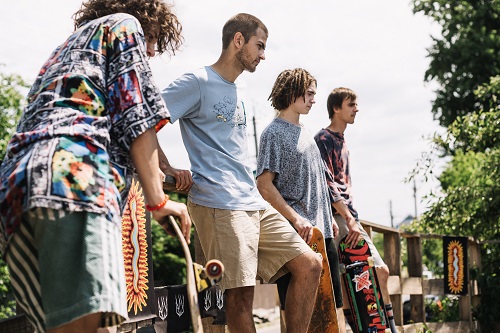
Protective factors and Resilience against suicidality for Aboriginal and Torres Strait Islander young people

Aboriginal and Torres Strait Islander young people died by suicide at a rate 2.7 times higher in communities in which more than 25% of the population experienced racial discrimination in the last year.
Australian Rotary Health/Rotary Club of Toowong Basil Shaw Funding Partner PhD Scholarship recipient, Mandy Gibson explored how connection to culture impacts suicide rates among Aboriginal and Torres Strait Islander young people. The study examined these at both the individual level with school students, and the community level using suicide mortality data.
In the community-level research, suicide rates among Aboriginal and Torres Strait Islander young people were lower in communities where First Nations people participated more frequently in cultural ceremonies and organisations, community events and activities, and reported a stronger sense of engagement with the broader community.
Tragically, in areas where more than a quarter of the First Nations population had experienced racial discrimination in the past year, suicide rates among young people under the age of 19 were nearly three times higher than in areas with lower levels of reported discrimination. This finding was somewhat unexpected, especially given that socio-economic resources did not appear to significantly influence Indigenous youth suicide rates. The effect of discrimination emerged stronger than all other risk and protective factors examined.
However, in communities facing the highest levels of disadvantage – such as regional and remote areas, socio-economically disadvantaged regions, and places where experiences of discrimination were more common – cultural protective factors played a crucial role. Higher levels of cultural engagement, including speaking Indigenous languages and participating in cultural events, ceremonies, and organisations, appeared to buffer the impact of these risk factors on youth suicide rates. Communities where people experienced more discrimination had the greatest buffering effect from community cultural connection.
In collaboration with a local Indigenous youth mental health charity, a program aimed at reducing suicide risk among Aboriginal and Torres Strait Islander students through cultural connection was evaluated. As part of this study, a tool was developed to assess the impact of the program and discovered that First Nations young people who felt confident in their cultural skills around peers and had a strong sense of cultural identity reported fewer suicidal thoughts. After participating in the five-week cultural education and knowledge-sharing program led by local Elders and community members, Aboriginal and Torres Strait Islander young people showed improved self-esteem and stronger reasons for living.
Media contact: [email protected] First published 16th April 2025
Graphic acknowledgement: FreePik.com